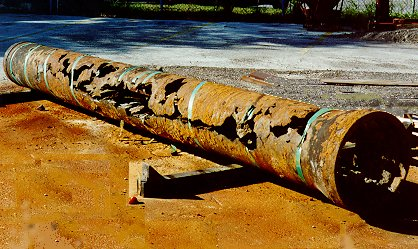 Menu
Menu
Different Types of Oil Soluble Corrosion Inhibitor
There are many oils soluble corrosion inhibitors on the market. Which one is right for your application? Let's find out! Here are the benefits of oil soluble corrosion inhibitor. And what's the best oil soluble corrosion inhibitor for your application?
High Film Persistent Crude Oil Corrosion Inhibitor
An oil soluble corrosion inhibitor (OCI) is an additive that helps protect metals from rusting. High Film Persistent, oil-soluble lubricants that are effective at protecting ferrous metals from corrosion. They form a thin film and displace moisture from metal pores and recesses, leaving a non-conductive, non-gumming, sacrificial coating. Unlike traditional rust inhibitors, they do not damage paints, plastics, silicones, or other materials.
A High Film Persistent Corrosion Inhibitor coating is a thin film of an OCI. This means the coating will not build up in threads and recessed areas, where it could lead to fire hazards. Another benefit of the coating is that it will not interfere with other coatings. The result is an aesthetically pleasing film that is easy to clean and apply.
Corrosion Inhibitor to Control Corrosion in Oil Production
This synthetic rust preventative is formulated to form long-lasting solutions. Its high corrosion inhibition properties make it a perfect choice for use in different applications and materials.
This oil-soluble corrosion inhibitor inhibits steel from corroding. It also inhibits the growth of rust on stainless steel and other alloys. This type of corrosion inhibitor can be applied directly to steel, copper, and other metals. The chemical is designed to reduce the corroding effect of water, oil, and gas. It can be applied to all surfaces of a metal, including those on the underside of the machines. It's important to apply this product on the most vulnerable place to corrosion.

Corrosion Inhibitor to Protect Oilfield Tubular Goods
This corrosion inhibitor that provides excellent protection in all conditions of carbon dioxide, oilfield brines, hydrogen sulfide and organic acids. It is suitable for use in flow lines, down hole equipment, and other applications where oil soluble corrosion inhibitors are needed. Its high solubility allows it to dissolve quickly in water, making it a good choice for corrosion control. It is highly effective in inhibiting the corrosion of different types of materials like carbon steel.
The Bottom Line
The organic inhibitor component forms an oily layer on metallic surfaces, repelling water. These inhibitors can also simulate corrosion by physically adsorbing to the metallic surface. The resulting chemistry is a good example of how a corrosion inhibitor works. However, it is important to note that no inhibitor works in all circumstances, and that there are a number of factors to consider when choosing an oil-based corrosion inhibitor.
